Preface: These Canons are intended as a statement for a general guidance, a framework within which all junior colleges may operate. It is assumed that each college publication will have its own written code or editorial policy, a set of guidelines designed to fit the needs of each of the various campuses. It goes without saying that these individual codes may vary; however, it is hoped that they will not conflict with the principles stated in these Canons. (JACC provides a model policy on its web site.)
Community College student newspapers and magazines are primarily information sources and public forums of their college communities.
The purposes of community college journalism in California are primarily these:
- To provide classroom instruction in journalism and to emphasize the professional principles, rights and obligations of a free press in a free society. This must rank equally with the workaday task of publishing a student newspaper or magazine.
- To provide the college with quality publications.
A good publication reports, interprets and comments upon those events and ideas which it deems significant or of interest to its readers.
Meeting the needs of its readers should be a basic aim of the student-produced publication. This should be fundamental in the exercise of editorial judgment, news play, content selection and editorial policy. Readers should receive a publication which fairly and accurately reflects campus life, which contains no bias in news reporting and editing, which exhibits fair play and sound reasoning in signed columns and editorials. Readers deserve a publication which leads, informs, instructs and entertains –all with evidence that truth, accuracy and good taste are foremost in the production of that publication.
The college publication has the right to criticize, to question and to evaluate. And the student publication assumes responsibility for the accuracy and completeness of that criticism. Constructive criticism, thoughtfully prepared and fairly presented, is basic to freedom of the community college press.
The exercise of this freedom must inevitably entail a heavy burden of responsibility. No publication should flaunt its right to print by publishing unfounded charges or unfair innuendoes.
Freedom of the college press includes not only the right to print, but also the right not to print.
The editor-in-chief of the editorial board of each college newspaper or magazine will be responsible for the content of the publication.
Under appropriate state and federal court decisions, all contents of college student publications are to be free of prior restraint by virtue of the First Amendment to the United States Constitution.
With full realization that many students associated with community college journalism lack perspective of experience, expert assistance from qualified faculty advisers is essential.
Journalism faculty members have the obligation to instruct and advise their students and see that the publication meets the highest standards of responsible journalism. Student journalists will make mistakes, but not knowingly, not without benefiting from those mistakes and not without full realization that they are responsible for those mistakes. The student publication is properly a learning experience. Particularly when publication results from a classroom or laboratory, the adviser is also a teacher.
The newspaper adviser should be a teacher who responsibility is to explain and demonstrate, to give competent advice. The adviser should instill a determination to make the publication as professional as possible. The adviser must be a guide rather than censor.
The readers should expect:
- Objective, accurate, thorough reporting of the news.
- Carefully considered, well supported editorial comment and leadership.
- An opportunity for various points of view to be expressed.
- Demonstrated concern for the rights of others.
Student publication editors and other staff members should expect to have:
- Access to information of interest and importance to readers.
- An understanding appraisal of their efforts. Responsibilities and obligations with each privilege granted.
- The ideals of the professional journalist.
- Professionally competent counsel and advice from an instructor-adviser who is a critic and a teacher.
The Journalism Association of Community Colleges adopts the principles and aims stated in the Code of Ethics of the Society of Professional Journalists, Sigma Delta Chi.
As revised June 2008
